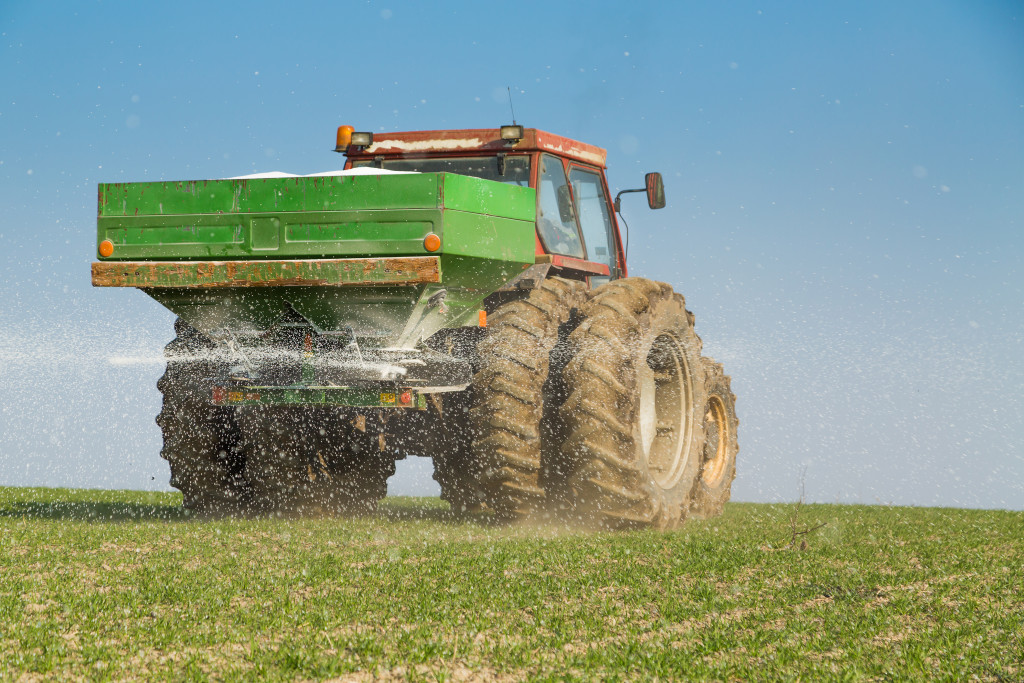As the world’s population grows, so does the demand for food. At the same time, advances in technology make it possible to produce more food with fewer resources. This has led to several exciting advancements in the agriculture industry in recent years. Here are ten of the most promising trends and innovations in agriculture today.
1. Indoor Farming
Indoor farming is one of the most exciting emerging trends in agriculture, as it allows farmers to grow crops year-round, even in unfavorable conditions. Using cutting-edge technology, such as automated climate control systems and farming drones, indoor farming enables farmers to increase yields and produce higher-quality crops with less waste. Additionally, this innovative farming method can grow a wide variety of crops, including fruits and vegetables that are typically difficult to grow outdoors.
2. Autonomous Tractors
One of the most game-changing agricultural innovations is the autonomous tractor. These cutting-edge machines are equipped with GPS systems and sensors to operate without a human driver. This not only saves farmers time and money but also reduces the risk of accidents on the farm. Additionally, autonomous tractors can be programmed to work longer hours than their human counterparts, meaning they can get more work done in a day.
3. Gene Editing
With the advent of new technologies, such as gene editing, farmers can more precisely manipulate the DNA of their crops to make them more resistant to disease and drought. By modifying the genome of a plant or animal, farmers can create new breeds that are better suited for farming in various conditions. This breakthrough technology has the potential to revolutionize agriculture and help feed a growing population.
4. Sustainable Agriculture
As the world becomes increasingly aware of the need for sustainability, sustainable agriculture is becoming more and more popular. This type of farming focuses on using natural resources to don’t damage or deplete them. For example, sustainable farmers might use cover crops to improve soil health or implement water-conservation methods to reduce water usage. By using sustainable farming practices, farmers can help protect the environment and ensure that their operations are sustainable in the long term.
5. Drones
Drones are becoming increasingly popular in various industries, and agriculture is no exception. Drones can be used for several tasks, such as mapping fields, spraying crops, and checking for crop damage. Additionally, drones can be equipped with cameras to provide a bird’s-eye view of the farm, which can help spot problems or assess crop health. Farming spray drones for sale are becoming more common as the technology becomes more affordable and easier to use.
6. Big Data
Big data plays an increasingly important role in agriculture as farmers strive to become more efficient and productive. With the help of technology such as sensors and remote monitoring, farmers can collect vast amounts of data about their fields and crops. This data can then be used to make farming decisions based on real-time information, which can help improve yields and reduce waste.
7. Artificial Intelligence
Artificial intelligence is another cutting-edge technology that is rapidly changing agriculture. AI-powered farming robots can perform tasks such as collecting data and issuing crop warnings, allowing farmers to stay on top of critical farming tasks without having to be physically present at the farm.
8. Vertical Farming
Vertical farming is a relatively new farming method that involves growing crops on vertically stacked layers in a controlled environment. By using this method, farmers can produce high-quality crops all year round and in any location, even those that don’t have ideal growing conditions. Additionally, vertical farming requires significantly less land and water than traditional farming methods, making it a more sustainable way to grow crops.
9. Aquaponics
Aquaponics is a farming method that combines aquaculture and hydroponics to create a closed-loop system. In this system, fish waste is used as fertilizer for the plants, while the plants act as a natural filtration for the water in which the fish are raised. Not only does aquaponics yield high-quality crops, but it also allows farmers to grow more food in a smaller space than traditional farming methods.
10. Precision Agriculture
Precision agriculture is an advanced farming technique that uses data and technology to provide farmers with detailed insights into their fields and crops. By leveraging this data, farmers can pinpoint areas of the field or plants that may be underperforming, allowing them to make targeted adjustments that can improve yields and efficiency. This type of farming is often referred to as “smart farming” due to cutting-edge technology to achieve better results.
The agriculture industry is constantly evolving, and the trends and innovations listed above are some of the most exciting developments in the field. These advancements have the potential to benefit farmers and consumers alike, so it’s essential to stay up-to-date on what’s happening in agriculture.


